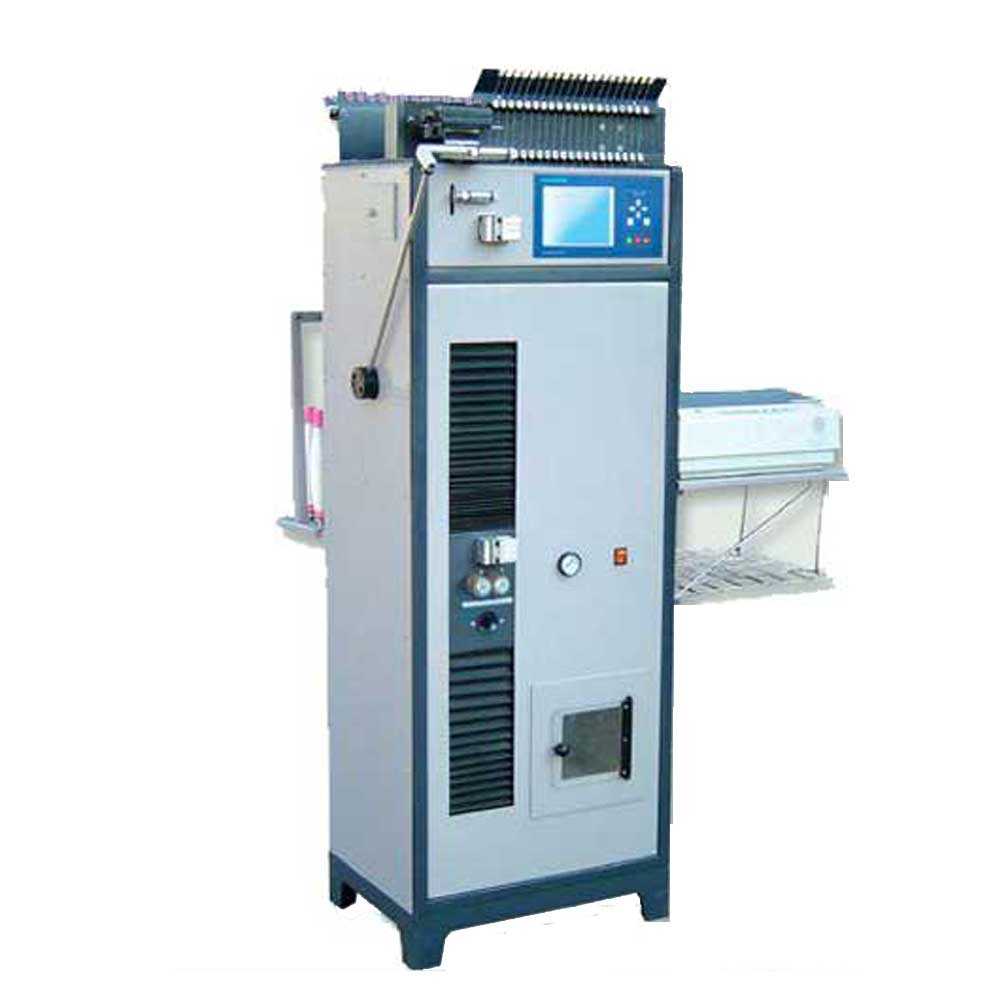Testing standards for single yarn strength tester
Testing standards for single yarn strength tester
1 Introduction
The single yarn strength tester is an important device in the textile industry for evaluating yarn strength and performance. The following are the testing standards for single yarn strength tester. These standards are designed to ensure the accuracy, consistency and repeatability of testing.

2. ISO 2062:2009 - Determination of yarn strength
2.1 Scope
The standard applies to all types of yarn, including natural fibers, synthetic fibers and blended yarns. It specifies a method for determining the strength of yarns under standard test conditions.
2.2 Test methods
- Sample preparation:
- Take random samples from the spindles.
- Prepare test samples according to specified length and mass.
- Test device:
- Use a suitable single yarn strength tester for testing.
- Ensure calibration and calibration of test instruments.
- Test Conditions:
- Control temperature and humidity to ensure consistent testing conditions.
- Test under specified test conditions.
- Testing process:
- Clamp the sample in the test fixture and apply gradually increasing tensile forces.
- Record maximum load and fracture location.
2.3 Data reporting
The test report should include the following information:
- Identification and description of the sample.
- Test date and location.
- Test equipment and conditions used.
- Test results, including maximum load and fracture location.
- Description of any deviation from standard test methods.
3. ASTM D2256/D2256M - Determination of single tensile strength of yarn
3.1 Scope
This standard applies to various types of textile yarns and is used to determine the strength of a yarn under single tension.
3.2 Test methods
- Sample preparation:
- Randomly select samples.
- Prepare test specimens of specified dimensions.
- Test device:
- Use single yarn strength tester for testing.
- Ensure calibration and calibration of test equipment.
- Test Conditions:
- Control environmental conditions, including temperature and humidity.
- Test under specified conditions.
- Testing process:
- Clamp the sample in the test fixture and apply a single tension.
- Record maximum load and fracture location.
3.3 Data reporting
The test report should include the following information:
- Identification and description of the sample.
- Test date and location.
- Test equipment and conditions used.
- Test results, including maximum load and fracture location.
- Description of any deviation from standard test methods.
4. ISO 5079:2017 - Determination of strength of textile raw yarns of synthetic fibers
4.1 Scope
This standard applies to synthetic fiber yarns used in textile raw materials, including a variety of fiber materials.
4.2 Test methods
- Sample preparation:
- Randomly select samples.
- Prepare test specimens of specified dimensions.
- Test device:
- Use single yarn strength tester for testing.
- Ensure calibration and calibration of test equipment.
- Test Conditions:
- Control environmental conditions, including temperature and humidity.
- Test under specified conditions.
- Testing process:
- Clamp the sample in the test fixture and apply gradually increasing tensile forces.
- Record maximum load and fracture location.
4.3 Data reporting
The test report should include the following information:
- Identification and description of the sample.
- Test date and location.
- Test equipment and conditions used.
- Test results, including maximum load and fracture location.
- Description of any deviation from standard test methods.
5 Conclusion
These standards provide testing methods for single yarn strength testers, ensuring accurate assessment of textile yarn strength and performance. Manufacturers, quality control agencies and consumers can rely on these standards to verify and compare the performance of different yarns to ensure they meet expected quality standards. When conducting tests, be sure to follow corresponding standards and procedures, and record test conditions and results to ensure test traceability and accuracy.
2023-11-14 11:19
- Related News
The importance of battery internal resistance testing in the battery manufacturi
Application and structural principle of high and low temperature test chamber
Application of Small Coating Machine in Polyimide Slurry
Principles and selection methods of laboratory incubators
Evaluation of Moisture Absorption and Rapid Drying Performance of Textiles by Na
Liquid Moisture Management Tester
Paper ring compression strength tester standards
